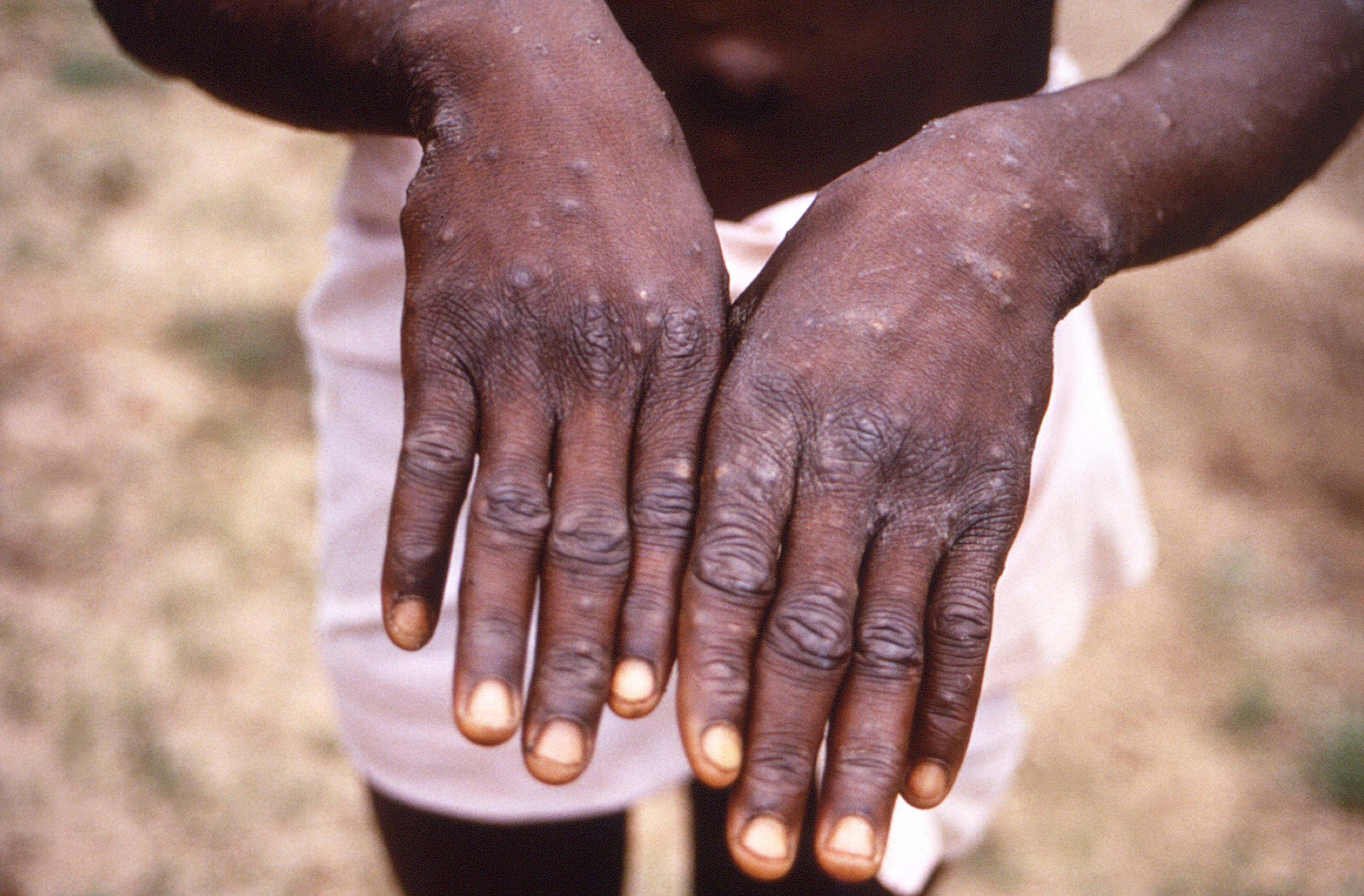Mpox declared public health emergency with fears of spread across borders
Compared with the same period last year, cases are up 160% and deaths have increased by 19%

Your support helps us to tell the story
From reproductive rights to climate change to Big Tech, The Independent is on the ground when the story is developing. Whether it's investigating the financials of Elon Musk's pro-Trump PAC or producing our latest documentary, 'The A Word', which shines a light on the American women fighting for reproductive rights, we know how important it is to parse out the facts from the messaging.
At such a critical moment in US history, we need reporters on the ground. Your donation allows us to keep sending journalists to speak to both sides of the story.
The Independent is trusted by Americans across the entire political spectrum. And unlike many other quality news outlets, we choose not to lock Americans out of our reporting and analysis with paywalls. We believe quality journalism should be available to everyone, paid for by those who can afford it.
Your support makes all the difference.An outbreak of mpox has been declared a public health emergency in Africa with fears the virus may spill across international borders.
Scientists from the Africa Centres for Disease Control and Prevention (Africa CDC) say they are alarmed by the speed at which a new strain of the highly infectious illness, previously called monkeypox, has been spreading.
It is passed on through close contact with infected people, including via sex, with the latest outbreak in the continent beginning with the spread of an endemic strain known as Clade 1.
The United Nations health agency said there have been more than 14,000 cases and 524 deaths this year, which already exceeds last year’s figures. So far, more than 96% of all cases and deaths are in the Democratic Republic of the Congo but it has spread to neighbouring countries and been detected in at least 13 African nations.
Compared with the same period last year, the CDC said cases are up 160% and deaths have increased by 19%. The World Health Organisation said mpox was recently identified for the first time in Burundi, Kenya, Rwanda and Uganda — with all of those outbreaks linked to Congo.

Mpox is related to smallpox with similar symptoms but a more severe rash. Patients usually start with a fever, sore muscles, swollen lymph nodes and headaches. Generally, a distinct bumpy rash begins to develop after one to three days in more severe cases. Unlike previous outbreaks, the lesions with Clade 1 are less visible meaning it is harder to spot and easier to spread.
Previously there was cross-immunity from smallpox jabs which are up to 85 per cent effective against monkeypox, but those immunisations stopped 40 years ago.
A 2019 meeting at the Chatham House think tank in London suggested that an unintended consequence of smallpox eradication could be that “emergent or re-emergent human monkeypox might fill the epidemiological niche vacated by smallpox”.
Africa CDC head Jean Kaseya warned the disease could spiral out of control if immediate steps were not taken to contain the current outbreak. He said: “This declaration is not merely a formality. It is a clarion call to action. It is a recognition that we can no longer afford to be reactive. We must be proactive and aggressive in our efforts to contain and eliminate this threat.”
Three vaccines exist but only people at risk or who have been in close contact with an infected person are usually eligible. Dr Kaseya said there were plans to secure about 10 million doses to limit the spread of the disease in Africa, but they may not reach the country for months.
Congo’s regulators approved the use of the vaccines domestically in June, but the government has not requested any doses from either the manufacturers or governments like the United States looking to make donations.
Reuters contributed to this report.
Join our commenting forum
Join thought-provoking conversations, follow other Independent readers and see their replies
Comments